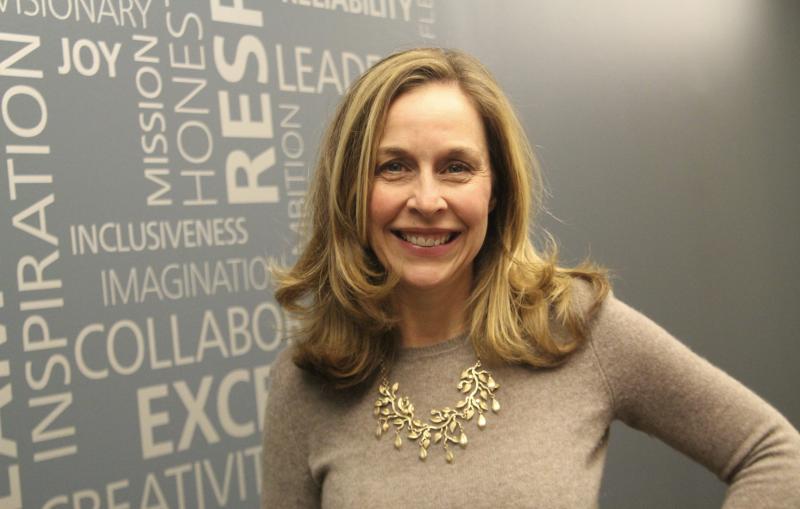
For the Duke Department of Medicine, the gesture of giving back to the community can mean a life-long commitment and Blue Dean, executive director of development for the Department, is a part of the team who helps prospective Duke Health donors give back in a way that is most meaningful to them.
Dean has been with Duke for almost six years and has close to 20 years of development experience under her belt.
Although having a career in development wasn’t Dean’s first intention, it became a passion that developed over time. Growing up in Tennessee, Dean’s mother was an active volunteer in their community. Seeing her mother give back encouraged Dean to follow in her footsteps.
“Volunteering was important to me throughout high school and college,” Dean said. “I knew that being a member of your community meant giving back…I was lucky enough to happen to stumble upon a career that allows me to be part of the community and also do something that I really enjoy.”
Her position focuses on the Department development activities by raising funds for the Department’s philanthropic priorities.
She oversees the Department’s development team, which consists of three additional development officers Morgan Pope, associate director of Development, Sally Schatz, director of Development, and Jake Pope, director of Development.
A part of Dean’s responsibilities include meeting with donors to learn how they want to partner with Duke Health and the Department to make a difference in the lives of others.
“Our role is to focus on the donor’s intent and we work diligently to match their interests with the Department’s philanthropic priorities” she said.
The donor demographic of Duke Health and the Department include grateful patients, former trainees and alumni, corporations and foundations, former faculty and staff, and the community.
Their gifts provide vital support that fund cutting-edge research, patient care, and education.
The Duke Health Development and Alumni Affairs team consist of approximately one hundred staff members who encompass a full slate of resources and services, designed to support Duke Health donor-centric fundraising and includes dedicated staff for research, communications, donor relations, and events.
Yearly, Dean and her team work with about 150-200 prospective and active donors.
She also works closely with the Department’s physicians to build a culture of philanthropic engagement among the faculty.
“If we don’t have strong partnerships with our faculty, we can’t be successful in our roles in development,” said Dean. “In ‘grateful patient’ fundraising, we work with both our faculty and our patients equally and involve the faculty each step of the way.”
Every day, Dean has to be flexible to accomplish her goals because sometimes she is met with unexpected tasks during the work day. Working in development requires several different qualities.
In this position, according to Dean, one must be inquisitive, approachable, empathetic, persistent, innovative, and have genuine interests in the donors’ prospective goals.
Usually, the donors’ gift reflects something they’re passionate about. Dean feels fortunate to leave each donor conversation with a lasting connection.
“There are many personal things that happen in one’s life and so many of these personal events influence the decisions that we make,” she said. “What I find rewarding in my role is that I have the opportunity to develop a meaningful relationship with someone and, through this process, I am able to learn what they want to accomplish through their giving.”
In August 2016, Dean worked with a married couple who wanted to make a gift to establish a patient assistance fund. During their many trips to Duke for the husband's care, the couple saw patients who were struggling and they wanted to do something to help others.
One day, she and Laura Blue, nurse practitioner, visited with the couple in their home. The wife was visibly moved when she explained how important it was to make this gift.
“That was such a special conversation to be a small part of. In development, we are often able to be a voice for the important work that our faculty and staff do each day,” said Dean. “We are able to help patients and their family members express their appreciation for the care they or a loved one has received and give back in a way that is meaningful to them.”
However, her relationship with donors doesn’t stop after a gift is given; it often continues to grow as time moves forward.
“Once someone makes a gift, the real excitement begins” said Dean. “A gift is an investment and we enjoy showing donors the impact of their investment- that may mean meeting the trainee a fellowship gift supports, learning about the cutting-edge research young physician scientists are conducting because of the support they have received, or knowing that your gift is assisting patients in need.”
This story was written by Tia Mitchell, communications intern for the Department of Medicine.